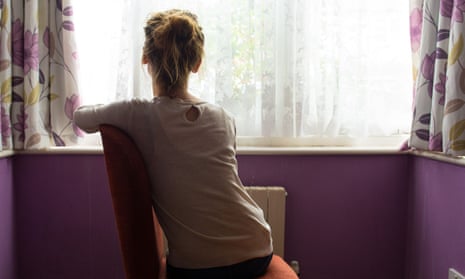This week, in Dublin, about 500 Amnesty International delegates from more than 80 countries will vote on a proposal on prostitution that would recommend decriminalising both the selling and buying of sex, as well as pimping and brothel-keeping. The supposed logic is that gender equality exists to the extent that prostitution is a consensual act, but also that buying sex from women in prostitution is an important human right for some men to improve “their life enjoyment and dignity”.
As somebody who has worked for several decades with prostitutes, I know exactly what “consent” means in the context of the sex trade. The vast majority of women enter it in the absence of real choices. Many are children – or were children when they first supposedly consented to it.
Those who buy sex are the reason why violence and discrimination are part and parcel of the sex trade. They are the reason why younger and younger girls are trafficked into it and why organised crime is attracted to countries that decriminalise it.
Legalisation of the sex trade has failed spectacularly where it has been introduced. In Germany and the Netherlands, violence and trafficking have hugely increased. Both countries are now backtracking from previous policies. In New Zealand, according to a 2008 report, women in prostitution said they were no more likely to report acts of violence or access health services than before decriminalisation.
A key moment in Amnesty’s history took place in the pages of this newspaper in 1961, when Peter Benenson launched an “Appeal for Amnesty”, after two Portuguese students were jailed for raising their glasses to toast freedom. For years, it has done important work, but has often missed a gender lens on issues such as sex trafficking.
Equality Now, an international women’s rights organisation, was set up partly in response to this gap. As international law experts, they were shocked by Amnesty’s proposed policy, which doesn’t recognise that the commercial sex trade is inextricably linked to sex trafficking. Buyers can never know if a women or girl has been trafficked. There is no question that, collectively, the men who (and the tiny number of women) buy sex keep the multi-billion trafficking industry afloat.
International law reflects this. The key treaty on trafficking – the Palermo Protocol – requires governments to enact policies “to discourage the demand which fosters all forms of exploitation, especially of women and children, that leads to trafficking”. The main women’s rights treaty, the Convention on the Elimination of all Forms of Discrimination against Women (Cedaw), points out that the exploitation of women is endemic in the commercial sex trade and the Cedaw committee has repeatedly asked governments to discourage the demand for prostitution.
International law views the commercial sex trade as incompatible with upholding the rights of women and ending sex trafficking. As an organisation that seeks to “respect international law”, why is Amnesty ignoring international law as it relates to prostitution and sex trafficking?
Organisations such as Space International were set up to give voice to the countless women who have survived the abusive realities of the sex trade. Space has released its own statement to Amnesty. As survivors, they know that there is nothing consensual or sexually liberating for the vast majority of people in prostitution. Its founder, Rachel Moran, tells it how it is: “Those who say otherwise are usually earning money in no-contact situations such as live web-cam porn; those pro-lobby voices who are actually in prostitution are overwhelmingly white, western, privileged women in escort prostitution and have no business speaking for the global majority.”
Survivors know that the only way to reduce exploitation and move ever closer to gender equality is to recognise the human rights of people in prostitution. This means recommending a set of laws and policies based on gender equality and informed by the truth of the prostitution experience.
Called the “Nordic Model”, it decriminalises those selling sex, while providing them with support and help to leave the trade. At the same time, it criminalises trafficking, pimping, brothel-keeping and those buying sex.
The approach has proved successful in Sweden, Norway and Iceland, and is now gathering pace around the globe. Canada and Northern Ireland have adopted similar laws. Ireland, France and others are expected to vote in coming months on Nordic Model-based legislation.
Similar recommendations exist at regional level. In early 2014, a European Parliament resolution noted that “there are several links between prostitution and trafficking” and recognises that prostitution – both globally and across Europe – feeds the trafficking of vulnerable women and underage females. Both the European Parliament and the Council of Europe recently adopted resolutions that recommended EU member states consider the Nordic Model.
Amnesty’s draft policy is at odds with this policy trend. It ignores international, regional and national recommendations to target the demand that fuels sex trafficking. It is at odds with the experience of survivors of the sex trade.
It ignores the need to protect the human rights of people in prostitution and it feeds into the hands of organised criminals, pimps and traffickers. We can only hope that, this week, all Amnesty delegates think long and hard about whose human rights they are striving to protect.
As Rachel Moran says: “What we’ve got here is like something straight out of Orwell’s Nineteen Eighty-Four, where champions of human rights have decided to use that position to endorse, not only the abusers, but the system itself in which victims are abused.
“If Amnesty passes this resolution, an enormous degree of damage will be wrought, on a lot of innocent individuals, in a lot of far-flung places, and the only deserved damage done will be to Amnesty’s own reputation.”
Esohe Aghatise is anti-trafficking manager at Equality Now
